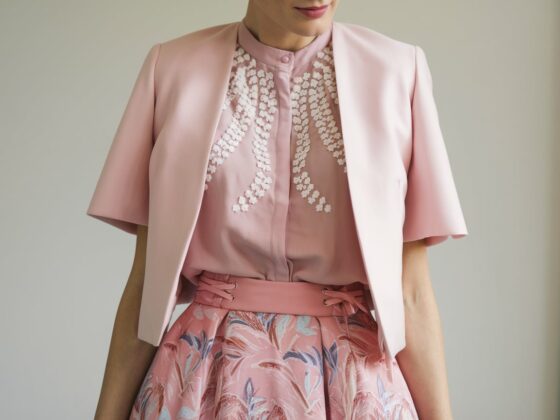This is something I’ve struggled with my whole life.
I’m in my 30s, and I can officially say that I have some amazing friends.
I don’t mean friends I just hang out with, I mean friends that I can call when I’m feeling like absolute crap and friends who will drop things and come over to actually “be” with me.
I’ve already covered how to make friends in your 30s here. Read this if you’re struggling to make good friends.
Making friends isn’t easy when you have social anxiety.
It’s not that you don’t want friends—you do.
You crave deep conversations, inside jokes, and the kind of friendship where you just get each other. But the thought of putting yourself out there? Terrifying.
I get it.
You replay every conversation in your head, overanalyze every interaction, and convince yourself that people find you awkward or uninteresting.
Small talk feels forced.
Meeting new people drains your energy.
And the worst part? You often feel alone, even when surrounded by others.
I know because I sort of struggled with this for so long.
I know how exhausting it is.
But I also know that friendship is possible, even with social anxiety.
You don’t have to be the life of the party.
You don’t have to pretend to be someone you’re not. You just need the right approach, the right mindset, and a little patience with yourself.
If you’ve struggled with making real connections, here’s how to make meaningful friendships—even when social anxiety makes it hard.
1. Start with Small, Low-Stakes Interactions
Making friends doesn’t mean jumping into deep conversations right away.
It starts small—a simple “hello” to your barista, a short comment to a coworker, or a friendly exchange with someone in your class.
These tiny interactions train your brain to feel more comfortable around people.
This will help you step out of your bubble and become comfortable just putting yourself out there.
It’s like exercising a muscle.
The more you engage in low-pressure conversations, the more confident and natural it starts to feel. You don’t have to be witty or say anything profound—just get used to talking without pressure.
Start small.
Remember, you’re not the Great Gatsby.
You’re just starting and think of this like a journey.
2. Find Comfort in Shared Interests
One of the hardest parts of making friends with social anxiety is not knowing what to talk about.
That’s why it helps to connect over a shared interest—because when you’re passionate about something, the conversation flows more naturally.
Join an online or in-person book club, gaming group, art class, hiking club, or a community centered around something you love.
I open the MeetUp app and go to coffee meets or board game meetups. I love board games so it’s very easy for me to make friends when we’re in a relaxed setting.
When you bond over shared interests, you don’t have to force small talk—the friendship grows organically.
This is something I took so long to realize!
Even back in college, I made friends because we used to play counter-strike. I also made friends when we had a common exam we were studying for.
3. Choose One-on-One Over Big Groups
Big social settings can feel overwhelming.
It’s easy to get lost in the crowd or feel like an outsider. But one-on-one interactions? They’re more manageable and genuine.
I remember going to a cafe meetup once where I mentioned I was a recent divorcee. One of the girls took me aside and confided that she had just left her abusive marriage too.
She and I went for a coffee a few times and our conversations just flowed. She felt so good getting all of it out and we formed an unlikely friendship.
If you click with someone, suggest a low-key hangout—grabbing coffee, going for a walk, or watching a movie.
Smaller settings let you connect in a way that feels less intimidating and more personal.
4. Let Go of the Pressure to Be “Interesting”
It’s very enticing at first, acting like some double-secret-agent.
But it wears out after a while because you have to keep up with the pretense and it becomes exhausting.
Social anxiety makes you believe you have to perform in conversations—to always be funny, entertaining, or insightful.
But real friendships aren’t built on impressing people. They’re built on authenticity.
You don’t have to say something perfect.
You don’t have to fill every silence. Let yourself just be. The right people will appreciate you for who you are—not for how well you can talk.
I’ve only just learned that listening is something that attracts people to you like flies to honey.
I’m not even kidding.
Even when I was dating, I could tell when people wanted to just talk and let out steam and I’d listen and just be there for them.
No advice, and no lectures, I just sat there and listened and agreed with them when they said life was hard.
And it strengthened my relationships.
5. Stop Assuming People Don’t Like You
Social anxiety makes your brain lie to you.
It tells you that people find you awkward, that they’re just being polite, that they don’t actually want to talk to you. But more often than not? None of that is true.
I can’t count how many times I’ve sat crying in my bedroom thinking nobody liked me.
I had so much pressure to make friends because that’s all I saw on TV. I couldn’t understand why it was so hard to find like-minded people. And I assumed that it was my fault for being so different.
Most people are too caught up in their own thoughts to analyze everything you say. And guess what? They probably want a friend just as much as you do.
Try reframing your thoughts: Instead of “They probably don’t like me,” tell yourself “They seem nice. I’d like to get to know them better.” Small mental shifts like this make a huge difference.
6. Be Honest About Your Social Anxiety (When You’re Ready)
You don’t have to announce it right away, but being open about your social anxiety can actually help you form deeper friendships.
A lot of people have noticed me playing with my hands nervously or talking too fast or tapping my leg and I realized that they’re not used to this kind of behavior. It puts them on edge.
So starting with this one sentence and saying, “I’m nervous, but I really want to be here.” really helps!
When you trust someone enough to say, “Hey, I get really anxious in social situations,” it removes the pressure.
It allows people to understand you better instead of misinterpreting your quietness as disinterest.
And you might be surprised—many people can relate.
7. Practice Self-Compassion on Bad Social Days
Not every social interaction will go smoothly.
Some days, anxiety will win.
You might feel awkward, stumble over your words, or leave a conversation feeling like you messed up.
That’s okay.
Friendship isn’t built in a single interaction—it’s a process.
Be kind to yourself.
Every step you take toward connection, no matter how small, is progress.
8. Reach Out First (Even When It Feels Scary)
Social anxiety makes you wait for others to initiate plans.
But the truth is, people appreciate being invited. If you wait for someone else to always reach out first, they might assume you’re not interested.
Even if it feels uncomfortable, try sending a simple text:
- “Hey, I really liked talking to you. Want to grab coffee this weekend?”
- “I saw this movie is playing—would you want to go see it?”
- “I’m going to [event] on Saturday. Want to come with me?”
You don’t have to be perfect. You just have to try.
9. Prioritize Quality Over Quantity
You don’t need a huge group of friends.
You don’t need to be social all the time. What matters is having a few people who truly get you.
I can count my good friends on 1 hand. And I’m happy with that.
A handful of deep, meaningful friendships will always be more fulfilling than a large circle of surface-level connections.
Focus on finding the right people, not impressing the wrong ones.
10. Accept That Friendship Takes Time
Friendships don’t happen overnight.
It takes time to go from casual acquaintances to close friends. Just because someone isn’t instantly your best friend doesn’t mean they won’t be in the future.
Keep showing up. Keep making small efforts. The best friendships grow naturally over time.
11. Remember That You Deserve Good Friendships
You might feel like you’re not interesting enough, fun enough, or outgoing enough to have close friends.
But here’s the truth: You are enough exactly as you are.
You deserve friends who appreciate you. You deserve connections where you feel safe, accepted, and valued. And even if it takes time, those friendships are possible.
You Are Not Alone in This
I get how hard this is.
It’s mentally frustrating when you just want someone to lean on and you’re struggling to find that.
Making friends with social anxiety is hard, but it’s not impossible.
The more you practice small steps—talking to new people, joining a group, reaching out first—the easier it gets.
One day, you’ll look around and realize you have the kind of friendships you always wanted.
The ones that feel natural, safe, and real.
And when that happens, you’ll be so glad you kept trying.










